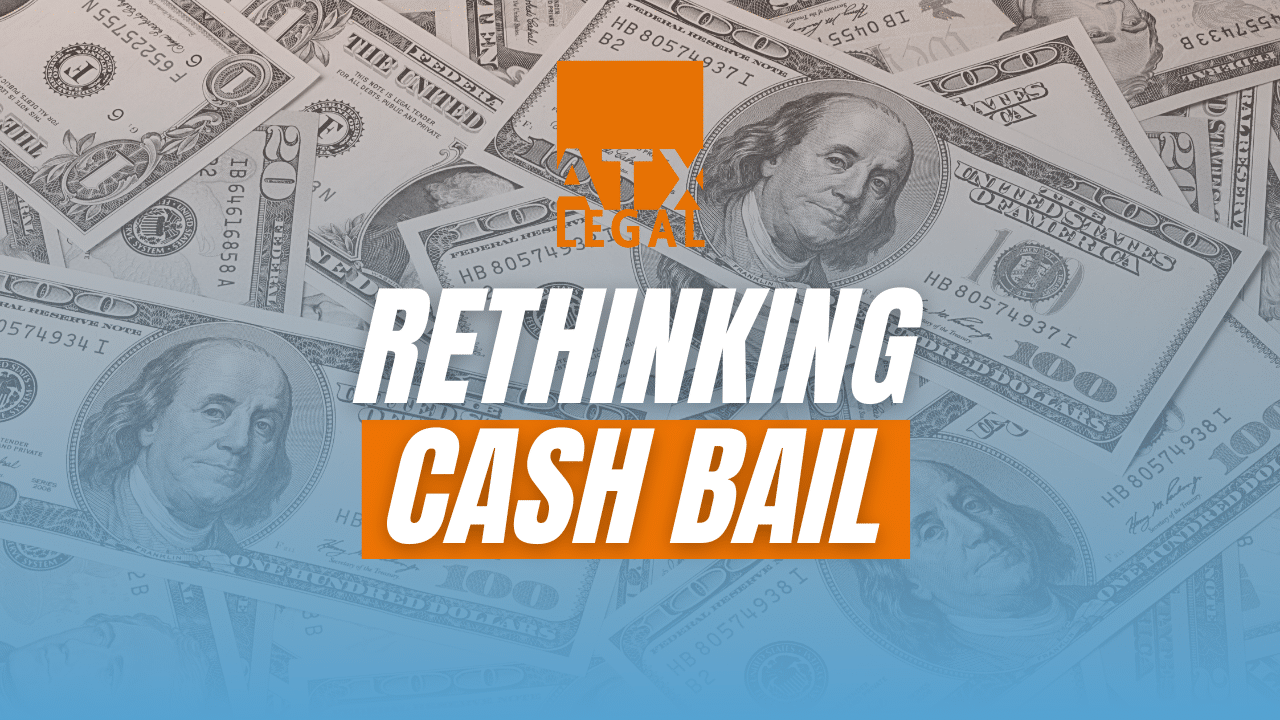Rethinking Cash Bail
A Houston judge last year ordered that defendants held on low level misdemeanors be released. This was in response to a lawsuit that argued that such detention represented an unconstitutional restraint on liberty. Although the Harris County Attorney was able to get an injunction so that defendants were not immediately released, this is still a positive step, and could potentially be used as a model for similar suits in counties across the country.

In Travis County, we are lucky that we have a system in place where low-level offenders are able to get Personal Recognizance (PR) Bonds to be released quickly – often the same or next day. Even if a PR bond isn’t granted by pretrial services, an attorney can often secure one and get the defendant released. There are still flaws, and sometimes defendants wait weeks or even months on misdemeanor charges if they cannot afford an attorney. But overall, the system works well.
Many jurisdictions are not as forgiving as Travis County. Many do not grant PR bonds as a matter of course, and instead rely on cash or surety bonds for virtually all jail releases. I am of the opinion that such systems are unconstitutional. The purpose of bail is two-fold. It is designed to incentivize defendants to return for their court dates, and also to ensure the safety of the community. Any amount that goes beyond these two purposes is illegal.
It is important to remember when considering bond that these defendants have not had their day in court, and are still presumed innocent. It should take an extraordinary showing to keep them locked up without a trial on the merits. But an extraordinary showing is rarely required. Unaffordable bonds are the normal procedure in many counties in Texas and across the country. That is why the Houston lawsuit could prove to be so important.
One jurisdiction – Washington D.C. – has recently moved to a cashless bail system. Instead of posting cash bail, defendants are given a risk score, and if their score is low enough, they are released. Often times, some supervision measures are put in place, but about 90% of defendants are released. This reduces the financial strain on defendants, many of which would have had to use rent and grocery money on bail. I would like to know more about the algorithms that determine the risk assessment before giving the DC system a ringing endorsement, but I believe that this is the type of sea-change that is needed to make our justice system a fair one.
No one wants a justice system that favors the wealthy. We can all remember newsworthy examples where money has triumphed over justice. O.J. assembled a dream team of attorneys, and secured an acquittal where most defendants would have had no chance. More recently, the “affluenza” teen in Dallas made the laughable argument that he deserved release because his family’s money was the root of a mental illness. I would argue that the real travesty is at the bottom of the system where indigent defendants give up weeks, months or years awaiting trial, simply because they can’t pay. This shouldn’t happen in a free society that purports not to allow restraint of liberty without due process of law.
I hope that more jurisdictions begin to move to systems similar to Washington D.C., where money has no effect on the decision to release pretrial. In the meantime, lawsuits like the one happening in Houston are a good step forward in reducing the connection between financial health and freedom. Justice should never be pay-to-play.


